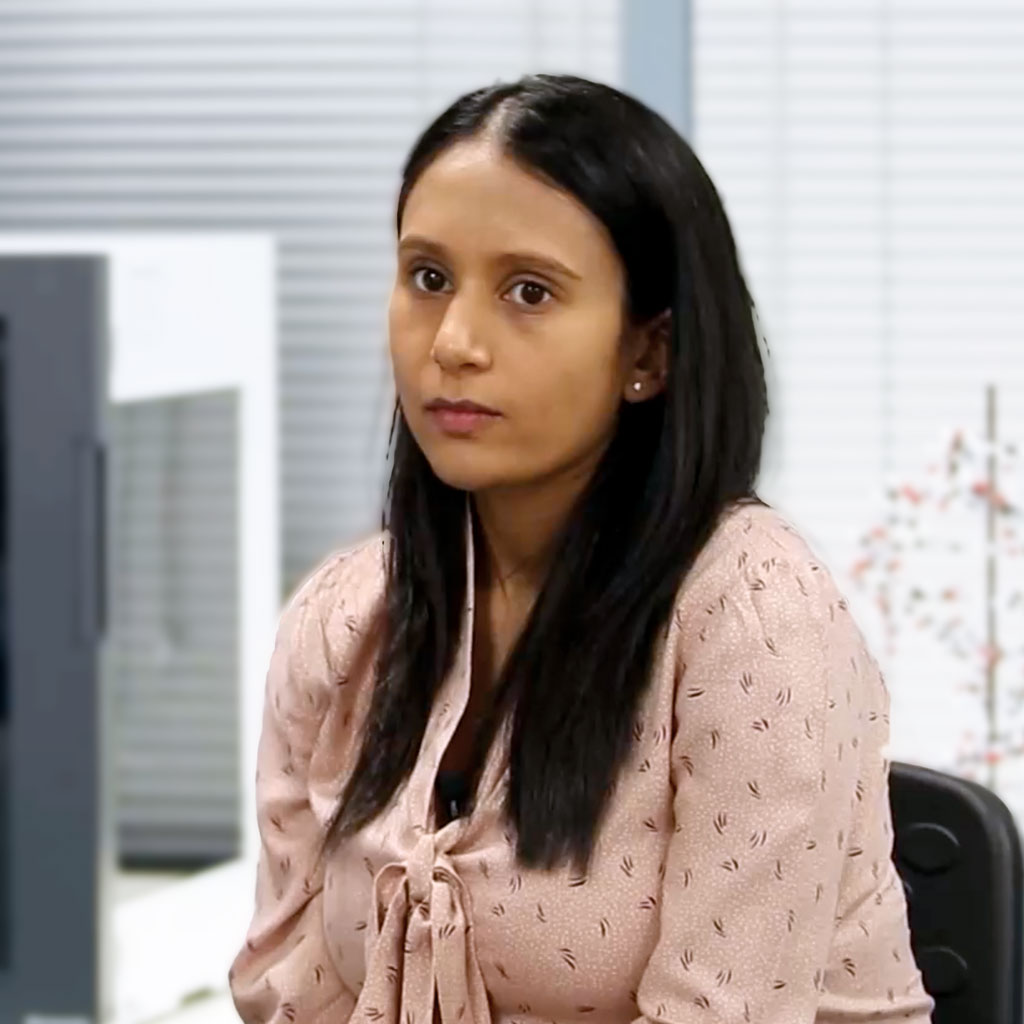

Fight against COVID-19
From synthesis, scale up and sequence confirmation of oligonucleotides
ATDBio is an oligonucleotide synthesis company based in UK, specializing in making high quality oligonucleotides for demanding applications including COVID-19 testing kits. To meet the demand for oligonucleotides since the start of pandemic, ATDBio have scaled-up their production and purchased several more Shimadzu LC systems. This has allowed the company to synthesise oligonucleotides on different scales, from minute to very large quantities of primers and probes for COVID-19 tests. ATDBio continues to make a significant contribution to tackling the COVID-19 pandemic.
Synthetic oligonucleotides, small pieces of single-stranded DNA and RNA made by chemical synthesis, have important uses in all aspects of molecular biology, genetics, medicine and beyond. But they have recently made front-page news as the major component in COVID-19 testing kits.
Effective solutions to complex problems
ATDBio is an oligonucleotide synthesis company based in Southampton and Oxford, UK, specializing in making high quality oligonucleotides for demanding applications. ATDBio has seen major changes to its business as a result of the coronavirus pandemic.
Dr Tom Brown Jnr, Director, explained: “All current genetic COVID-19 testing methods require synthetic oligonucleotide primers and probes. We work with our customers, including UK hospitals and private companies, to help them develop simpler, faster and more accurate diagnostic methods. We’ve been inundated with enquiries since the advent of the pandemic, and we’re scaling up our oligonucleotide synthesis capability significantly in order to meet this demand.”
Ian Tear, Senior Production Scientist, added: “We have the flexibility and knowledge to adapt our production processes to our customers’ needs. We take pride in finding simple, effective solutions to complex problems, allowing our customers to focus on their research.” This knowledge and deep understanding of nucleic acid chemistry, combined with years of experience, are among the many reasons ATDBio is sought after for custom oligonucleotide synthesis.
Shimadzu’s reputation for robustness, innovation, product longevity and customer service were just some of the reasons ATDBio selected Shimadzu LC Nexera Prep systems as part of its production workflow.
Dr Brown explained “Almost every lab I’ve worked in seems to have had an old Shimadzu UV/Vis spectrometer, still going strong. I also remember reading about Koichi Tanaka at Shimadzu winning the Nobel Prize in 2002. We visited the Shimadzu laboratory in Milton Keynes, met some of the staff, and were particularly impressed with their knowledge, willingness to understand our challenges, and ability to find us a system that was a match for our needs. Shimadzu’s appreciation of our needs, along with delivery and support of a trustworthy solution was beyond our previous experience.”
Dr Brown added: “As part of our recent scale-up, we purchased several more Shimadzu LC systems. We synthesize oligonucleotides on different scales, from very small amounts for research purposes, to very large quantities of qPCR and LAMP primers and probes for COVID-19 tests. Having the ability to work reliably across a wide range of synthesis scales is crucial for us.”
Analyzing nanoconstructs quickly with minimal sample clean-up
When not working on COVID-19, ATDBio engages heavily in research and development, which it views as essential to remain at the forefront of the nucleic acids field. Dr Brown explained: “At any one time we are involved in several research projects. One of our current projects is on DNA nanotechnology, in which oligonucleotides are used as building materials to make large DNA nanoconstructs, which have the potential to be used in drug delivery.”
ATDBio employs complementary analytical techniques. However, when material is scarce or the DNA contains a high degree of secondary structure, possesses a large molecular weight or contains components which interfere with the LC or MS such as salts or proteins, the MultiNA is the go-to instrument. MultiNA enables highly reproducible analysis of DNA & RNA using automated microchip electrophoresis. Quentin Vicentini, Marie Skłodowska-Curie Early Stage Researcher on the DNA-Robotics project, added: “The MultiNA allows us to analyze nanoconstructs quickly with minimal sample clean-up. It provides a quick, reproducible and high-resolution validation that an experiment has worked before moving on – rather than waiting for a gel to run.”
ATDBio will continue to make a significant contribution to tackling the COVID-19 pandemic, as well as improving thepreparedness for future outbreaks. Shimadzu will surely be there to help.